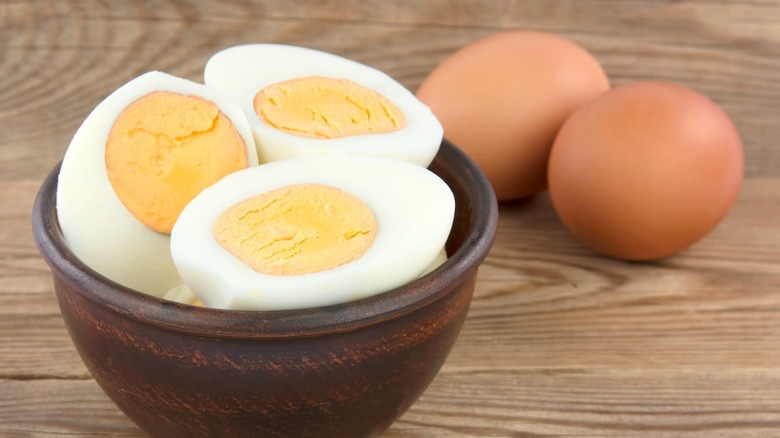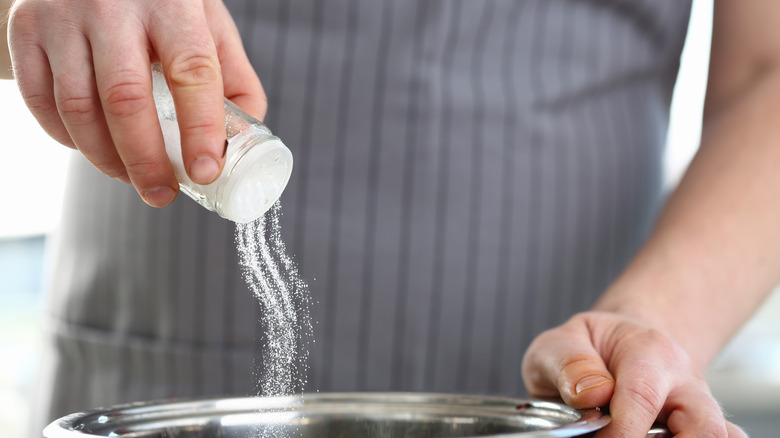Why Not Salting Your Water Is Ruining Your Hard Boiled Eggs
Hard-boiled eggs are a popular staple food thanks to their simplicity and versatility. While there are so many delicious ways to enjoy them, plain hard-boiled eggs with a sprinkle of salt and pepper or on toast are nutritious and quick to make. But, even the simple act of boiling an egg can become frustrating when the whites seep out and form unsightly, stringy bulbous clumps in the water. If you've experienced this a few times, you likely have been careful to check your eggs for cracks before boiling them. You probably lowered them carefully into the saucepan to avoid smashing the shells and have dutifully avoided overcrowding the saucepan to prevent the eggs from knocking into each other. Still, somehow, at least one rogue egg leaks out. Why does this happen?
Simply put, it's because you did not salt the water. That's right! All you need for perfect-looking, easy-to-peel hard-boiled eggs is just one teaspoon of salt. Here's why. Adding table salt –- a hygroscopic (water absorbing) substance –- to the water solidifies the egg whites that escape the shell by breaking up the proteins. This chemical process helps the coagulated egg whites to plug the cracks in the shell and prevents them from oozing into the water. Despite any cracks and potentially minor seepage, the eggs you boil will not be ruined.
The science behind salting water
One of the most common mistakes you can make with hard-boiled eggs is overcooking them, but this also shouldn't be a problem if you salt the water first. Salt raises the temperature of boiling water, which helps egg whites cook relatively faster without getting a rubbery texture. This fast cooking also insulates the yolks from being overcooked and allows them to set at 170 degrees Fahrenheit without creating a grey-green ring. The ideal cooking time for large hard-boiled eggs is 10-12 minutes.
Hard-boiling eggs in salted water makes peeling them easier, too. Egg whites that get cooked more slowly retain a firmer bond with the shell's inner membrane, making peeling a painstaking task. Besides mitigating the temperature quandary (as explained above), salt weakens and permeates the shell, dissolves the membrane that connects it to the egg, and makes the congealed egg contract and pull away from the shell. Therefore, cooking in boiling, salted water within the ideal window helps the eggshell glide off to reveal a beautiful, smooth hard-boiled egg.
How cool is that? The next time you make deviled eggs, egg salad, an egg sandwich, or even Easter eggs, don't forget to add salt to the water for mess-free cooking and peeling.

